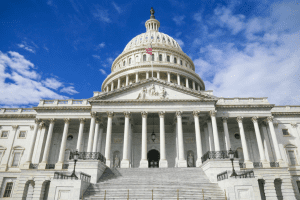
Atlanta – On Monday, July 1, the Supreme Court ruled in a 6-3 decision that the executive branch enjoys a presumption of immunity for “official acts.” However, they held back from identifying what, precisely, constitutes an “official act.”
Immediately, former President Trump claimed that each act for which he has been indicted is now an “official act.”
Justice Sonia Sotomayor, who wrote the dissenting opinion, claimed that this decision makes the president “a king above the law,” which isn’t entirely true, though the decision does remove an important check of presidential power.
“This is like qualified immunity on steroids, and I oppose this ruling from the court,” says Chase Oliver, 38, Libertarian candidate for president, the only candidate to campaign in all 50 states.
“Nowhere does the Constitution grant this presumption of immunity to the executive branch. Much like qualified immunity, this seems to be a doctrine made by legislating from the bench. That is not the proper role of the court.”
The fight over presidential criminality now shifts from the facts and evidence of whether or not they objectively broke the law to the subjective definition of “official acts.” This all but guarantees that any debate over the “officiality” of an act will end up a question before the Supreme Court after running the gamut of lower circuit courts and obligatory appeals.
The Supreme Court – unelected, armed with lifetime appointments and no accountability for themselves – can grant immunity to one president based on their definition of an official act, and deny it from another just as easily.
“The decades-long SCOTUS doctrine of qualified immunity for law enforcement is a completely unnecessary impediment to Americans’ fundamental right to seek redress in court,” says Mike ter Maat, Libertarian candidate for vice president.
We’ve seen the damage that qualified immunity has wrought with the modicum of power wielded by police. This will only be magnified with the level of power imbued in the executive office. It’s not just bad if Trump is immune to the consequences of his actions. It’s bad if Biden has immunity, or RFK, or Kamala Harris, or any of the other surrogates ready to hop in when Weekend at Bernie’s finally rolls credits.The pearl-clutching from pundits has been laughably hypocritical, however we know and have known for some time, that there are multiple tiers of justice in this country. No one should pick and choose what laws a president is allowed to break. They shouldn’t be allowed to break any.
If your duties require you to break the law, we should be questioning your duties, not your accountability. The idea that any President should enjoy immunity for acts that would earn the common citizen a lethal injection is a violation of every notion of justice that we hold dear. Real leaders lead from the front; they don’t ask others to do what they aren’t willing to.
The solution, however, is not to expand and pack the court, as some have suggested, nor to roll things back where we were a week ago when the president was only immune from accountability for civil rights violations and war crimes.
The answer is a radical return to an entire government that embraced limitation from top to bottom, that prized restraint above the fevered grasp for power. The founders of this country knew what it meant to kneel before a king under the threat of the gallows.
Media outlets love to hyperbolize endlessly about fascism and tyranny, but we don’t want to find out what it’s really like to live under a true dictator. There is time, yet, to change the course of events laid bare before us.
There is only one presidential ticket that wants the executive office to have less power, less immunity, and more accountability, and that’s Chase Oliver and Mike ter Maat.
SCHEDULE INTERVIEWS WITH CHASE OLIVER
Amber Howell, Media Director
706-436-3690
